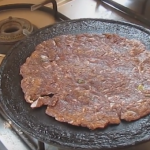Oily stool is caused due to the presence of fats in stool and is medically referred to as steatorrhea. It usually occurs due to malabsorption of fats when food is getting digested, i.e., the fats were not absorbed by the linings of the digestive tract. Oily stool usually appears greasy and bulky and emits a foul odor.
Changes in the diet and/or infections of the bowels can result in a temporary case of oily stool. They are usually not serious and often resolve on their own.
Chronic instances may develop as a symptom of underlying illnesses affecting the biliary tract, pancreas, or the bowels. Oily stool that lasts for over 2 weeks tends to be classified as a persistent or prolonged abnormality. Any increase in the severity levels of the symptoms that accompany steatorrhea can also be regarded as part of some severe disease that needs to be immediately treated. In case, oily stool is bloody or tarry, or is accompanied by elevated pain or cramps in the abdomen and high fever, etc., then patients need to seek emergency medical care.
Symptoms
The signs and symptoms that may occur along with oily stool are usually dependent on the type and severity of the underlying causative condition. A few common ones are listed below:
- If the digestive tract is affected: Patients with digestive tract problems may experience fatty stool along with,
- Abdominal cramping or pain
- Swelling or distention of the abdomen; bloating
- Stool that emits a foul smell
- Blood in stool; the blood may be reddish, black, or tarry
- Pale colored stools
- Nausea, which may be accompanied by vomiting
- Diarrhea
- Gas
- If other body systems are affected: Patients with problems of body systems other than the digestive system may experience oily stool along with,
- Sudden loss of weight
- Skin itchiness
- Jaundice along with yellow skin and eyes
- Persistent infections
- Coughing
- Dark colored urine
- If there is an underlying life-threatening condition: Patients with underlying dangerous conditions may experience oily stool along with,
- Elevated abdominal rigidity
- Chest pain, chest tightness, elevated pressure in chest, and palpitations
- Fainting, unresponsiveness, passing out, or changes in consciousness or alertness levels
- Respiratory problems such as breathing issues, labored breathing, or shortness of breath
- High fever marked by body temperatures higher than 101 F
- Severe pain in abdomen, or sudden and sharp pain in abdomen
- Blackish or reddish stool that appears tarry
Oily stool can be a sign of severe underlying ailments. Hence, if it is left untreated, then it can result in health complications such as:
- Low count of RBCs, anemia
- Persistent opportunistic or severe infections
- Bowel blockages, rupture of intestinal wall
- Poor nutrition due to diarrhea, poor nutrition, vomiting
- Growth issues in children
- Infants may fail to thrive and grow
- Spread of cancer
- Cancer or severe infection may require surgical removal of certain parts of the digestive tract
- Spread of varied infections
Causes of oily stool
Oily stool is caused due to malabsorption of fats from food. This can occur due to surgical removal of a section of the digestive tract or due to swelling and inflammation of the tract linings caused by varied underlying digestive conditions like celiac disease, Crohn’s disease, IBS, ulcerative colitis, etc.
Absorption of fat from food is also dependent on pancreatic lipases, bile fluid produced by liver, and normal functioning of the bowels. Bile deficits can be caused by liver problems or biliary tract blockage, etc. Deficits in pancreatic lipases is rare, but can occur as part of conditions like pancreatic problems, cystic fibrosis, or pancreatic defects present from birth.
Some of the common causes that prevent fat absorption, thereby leading to oily stool include:
- Pancreatic abnormalities: These include varied diseases such as cancer of the pancreas; pancreatitis or inflammation of the pancreas; congenital pancreatic lipase deficiency a birth defect that limits the pancreatic ability to secrete lipase; and cystic fibrosis, a genetic disorder marked by restricted lung and pancreas functions.
- Biliary tract abnormalities: It includes conditions like gallstones; biliary atresia which is a congenital disorder that hampers bile duct development; cholangiocarcinoma or cancerous tumors in the biliary tracts or gallbladder; and biliary stricture, a condition marked by narrowing of the duct that passes bile from liver and gallbladder to the intestines.
- Intestinal disorders: It includes conditions like celiac disease that damages the intestines after intake of gluten-containing foods; weight loss surgeries like bariatric surgery; short bowel syndrome wherein the bowel is shorter than normal; inflammatory conditions of the intestines like Crohn’s disease, ulcerative colitis, etc.; bacterial, viral, or other infections of the intestinal tract; and occurrence of food intolerance (lactose intolerance) related allergic reactions that damage the intestines.
Treatment of oily stool is dependent on the underlying causative condition. For example, biliary duct problems can be treated with medications, diet and lifestyle changes, or surgery.

